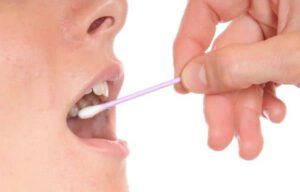
Saliva sampling for genetic screening tests has entered the market in recent years.
Since DNA exists in saliva, saliva was used for years in different genetic tests, mainly paternity tests, and tests in forensics. These tests were simple to use and did not require the biologically complex analysis required in today’s genetic screening tests. However, technological advancements have allowed genetic screening tests to evolve and today saliva samples can be used to identify numerous genetic diseases.
The biggest advantage of saliva tests is that there is no need to collect blood. This can increase the willingness to undergo these tests. In addition, saliva sampling can test for a wide range of diseases, regardless of ethnic descent and family health history (as opposed to genetic screening tests that are based on blood tests).
When is the test performed?
Like other genetic tests, it is recommended to undergo genetic saliva tests before trying to conceive. That way if the results indicate a risk for genetic disorders, the couple can choose to use IVF and genetic consulting before the embryo transfer.
The test can also be performed after the beginning of the pregnancy, although this is not recommended. The implications of this choice are that it may be necessary to undergo further tests such as chorionic villus sampling, amniotic fluid tests or anomaly scans, if the saliva test results indicate a genetic disorder.
It is important to note that due to developments in medical technology and the existence of innovative and advanced tests, many health professionals recommend that couples re-take saliva sampling tests, even if they have already undergone such tests in previous pregnancies. This is because newer tests can provide new information that may have been unavailable in older tests.
Who should undergo the test?
Any couple planning a pregnancy can undergo a saliva sampling test, just like other genetic screening tests.
In most cases, the test is undergone by the mother. The father is tested only in cases of a risk for hereditary diseases.
These tests are used to diagnose a wide range of genetic diseases, regardless of family health history of ethnic descent. For this reason, the test is recommended to the whole population.
It should be noted that saliva sampling tests do not usually have major advantages over blood tests. For this reason, most people settle with taking the standard blood tests for genetic testing.
Saliva sampling tests are recommended in cases where the ethnic descent is not clear, and in cases of a high risk of a multitude of genetic disorders due to many ethnic descent groups. Saliva tests can be helpful in cases where it is difficult to determine risk factors, since they offer a screening for more than 90 diseases, whereas blood tests offer specific diagnosis depending on ethnic descent and relevant risk factors.
It is likely that in coming years, more young couples will choose to undergo saliva tests, since they replace the need to undergo a blood test, and since the number of couples with unclear ethnic descent is rising, creating a larger risk for genetic diseases.
How is the test performed?
Saliva tests are performed by taking a sample of saliva (spit). This sample is taken to a lab where the analysis takes place. This is a simple and fast test, that is non-invasive and does not cause any pain or inconvenience. Results are usually sent via mail after several weeks.
Which diseases can the test detect?
Today, saliva tests can diagnose many genetic mutations that can cause dozens of prevalent genetic diseases.
Among these diseases are Tay-Sachs disease, Familial dysautonomia, cystic fibrosis, Gaucher’s disease, Canavan Disease, Fanconi anemia, Bloom’s syndrome, Niemann Pick disorder, Glycogen storage diseases, galactosemia, Ataxia telangiectasia, PCCA, Retinitis pigmentosa, PKU and other hereditary diseases.
According to experts, undergoing a saliva test can reduce the risk of birth defects to one in 500,000, or even one in a million. However, it is important to consult a geneticist before undergoing the test, to get a recommendation for a reliable genetic testing facility that will make sure all the required tests are performed correctly.
It is also important to note that there are certain tests that can only be performed using a blood test since these diagnoses are not yet available with saliva tests. For this reason, it is not recommended to undergo the tests without sufficient background in genetics and they should not be undergone independently, only under proper medical supervision.

